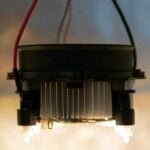Hydroponic nutrient chart for vegetables can help guide you on the nutrient regime to give your vegetable plants. We will be giving you a helpful tip on the hydroponic nutrient chart here for your vegetables so you can have proper guidance on the nutrients to provide your plants so they can flourish and yield great results.
Hydroponics majorly deals with growing plants in the absence of
But do you actually know the type or amount of nutrient plan to supply your vegetables? Let’s delve into the hydroponic nutrient chart for vegetables to know more about this.
Hydroponic Nutrients Guide
It is crucial to supply the right balance of nutrients and amounts of nutrient solution in your hydroponic garden. This is important so your plants can grow well. Plants have various needs.
Here are some tips to guide you when it comes to hydroponic nutrient needs for your hydroponic gardening.

Basic Nutrients
The basic nutrients are one of the most essential needs of a plant. They are responsible for the biological process that plants needs for survival. Plants need to respire, obtain moisture, and photosynthesize just to survive.
These basic nutrients responsible for the biological process of plants include hydrogen, oxygen, carbon, and nitrogen. They need to be taken care of first because, without them, plants will die. But plants can still live without other remaining nutrients but they just won’t thrive properly.
Macro-nutrients And Micro-nutrients
So macro and micro-nutrients are the remaining nutrients needed by plants. Macro-nutrients include nitrogen, potassium, phosphorous, calcium, sulfur, and magnesium. Then micro-nutrients include iron, zinc, boron, and manganese.
What Nutrients For Hydroponic Vegetables?
The nutrients that your hydroponic vegetables require include nitrogen, phosphorous, potassium, calcium, sulfur, zinc, manganese, and zinc. All these nutrients can help improve the growth and quality of your vegetables.
Hydroponic Nutrient Chart For Vegetables
A hydroponic nutrient chart for vegetables has been shown below. So, we’ve given below a chart to describe the nutrient regime for some of your favorite vegetables;
| S/N | Plant | PPM | EC | pH |
|---|---|---|---|---|
| 1 | Asparagus | 980- 1260 | 1.4- 1.8 | 6.0- 6.8 |
| 2 | Artichokes | 560-1260 | 0.8- 1.8 | 6.5- 7.5 |
| 3 | Broccoli | 1960- 2450 | 2.8- 3.5 | 6.0-6.5 |
| 4 | Basil | 700- 1120 | 1.0-1.6 | 5.5-6.5 |
| 5 | Lettuce | 560- 840 | 0.8- 1.2 | 5.5- 6.5 |
| 6 | Parsley | 560-1260 | 0.8- 1.8 | 5.5- 6.0 |
| 7 | Spinach | 1260- 1610 | 1.8- 2.3 | 5.5- 6.6 |
| 8 | Swiss chard | 1260- 1610 | 1.8- 2.3 | 6.0- 6.5 |
| 9 | Thyme | 560- 1120 | 0.8-1.6 | 5.5- 7.0 |
| 10 | Watercress | 280- 1260 | 0.4- 1.8 | 6.5- 6.8 |
PH
We have also added the pH chart because nutrient and pH usually comes hand in hand. The right pH helps in the appropriate absorption or intake of nutrients by your plants.
EC And PPM
Electrical conductivity, EC, measures the level of salt or nutrient in your hydroponic system. Hence, it is an indirect way of measuring the concentration of the nutrient solution. So, the electrical conductivity of your nutrient solution is measured using an EC meter.
After measuring the electrical conductivity of the nutrient solution, the value gotten is then converted to a measure of the total dissolved solids in PPM (i.e. part per million).
Using an EC meter can help in ensuring your nutrient solution is in the right concentration and remain at this state over time. Therefore, you don’t have to worry about nutrients becoming too concentrated.
How Much Nutrients Do I Need For Hydroponics?
The amount of nutrients supplied to your hydroponic plants can make a big difference in their outcome. Too little nutrients can hinder your plants from attaining their peak. Then too much nutrient can fry your plants.
Hydroponic gardening is based on water rather than
The answer mainly depends on some factors and they include:
· Reservoir Size
The size of your hydroponic reservoir is one major determining factor when it comes to how much nutrients your plant needs. Generally, for a 16 gallon of water, you will need around 1 to 2 cups of pre-mixed liquid nutrient solution.
· Plant’s Stage
The plant stage is another factor to consider. The plant has different growth stages such as seedling stage, flowering stage, vegetative stage, fruiting stage, and so on. Each of these plant stages requires different nutrient amounts. You can buy a pre-mixed nutrient solution or you can make one by yourself.
When using a pre-mixed solution, you can go for multiple prepared solutions just to achieve your desired ratio.
On the other hand, when using a prepared hydroponic nutrient solution, it is important to follow the instructions on the label. This is to determine the right amount of nutrients for your reservoir.
Ideally, less amount of nutrients should be supplied during the early part of your plant’s life cycle. Then you will need to increase the nutrient plan once your plant has reached the big or major part of its growth. While you’re at it, ensure you start with less and increase it along the line so you don’t overdo the nutrient supply.
· The Type Of Plant
The type of plant is another determining factor when it comes to the amount of nutrients for your hydroponics. For example, peppers and tomatoes need a bit more fertilizer compared to most vegetables or leafy greens.
The good thing is that you can get some suggestions about the nutrient plan for the type of plant from the nursery where the plant was purchased.
General Hydroponics HGC718125 FloraMicro 5-0-1

Conclusion On Hydroponic Nutrient Chart For Vegetables
The hydroponic nutrient chart for vegetables has been explained in this guide. So, if you would love to start a vegetable hydroponic garden for your indoor farming, you can look through our guide.
Even though the amount or dosage of the nutrient is pretty important, you don’t really have to worry about perfection. There are too many factors that can affect the accurate or precise amount that can lead to a perfect nutrient regime.
Just ensure you do the best you can to supply your plants with the appropriate amounts of the nutrient regime. Then you can see your plant flourish and enjoy that bountiful harvest.
FAQs
How much nutrients do I need for hydroponics?
The amount of nutrients supplied to your hydroponic plants can make a big difference in their outcome. Too little nutrients can hinder your plants from attaining their peak. Then too much nutrient can fry your plants.
Hydroponic gardening is based on water rather than soil and this water has nutrients that have been dissolved into them. But the question we would like to know is the amount of nutrient solution is needed in your hydroponic garden?
The answer mainly depends on some factors and they include;
• Reservoir size
The size of your hydroponic reservoir is one major determining factor when it comes to how much nutrients your plant needs. Generally, for a 16 gallon of water, you will need around 1 to 2 cups of pre-mixed liquid nutrient solution.
• Plant’s stage
The plant has different growth stages such as seedling stage, flowering stage, vegetative stage, fruiting stage, and so on. Each of these plant stages requires different nutrient amounts. You can buy a pre-mixed nutrient solution or you can make one by yourself.
When using a pre-mixed solution, you can go for multiple prepared solutions just to achieve your desired ratio.
On the other hand, when using a prepared hydroponic nutrient solution, it is important to follow the instructions on the label. This is to determine the right amount of nutrients for your reservoir.
Ideally, less amount of nutrients should be supplied during the early part of your plant’s life cycle. Then you will need to increase the nutrient plan once your plant has reached the big or major part of its growth. While you’re at it, ensure you start with less and increase it along the line so you don’t overdo the nutrient supply.
• The type of plant
The type of plant is another determining factor when it comes to the amount of nutrients for your hydroponics. For example, peppers and tomatoes need a bit more fertilizer compared to most vegetables or leafy greens.
The good thing is that you can get some suggestions about the nutrient plan for the type of plant from the nursery where the plant was purchased.
What nutrients for hydroponic vegetables?
The nutrients that your hydroponic vegetables require include nitrogen, phosphorous, potassium, calcium, sulfur, zinc, manganese, and zinc. All these nutrients can help improve the growth and quality of your vegetables.





